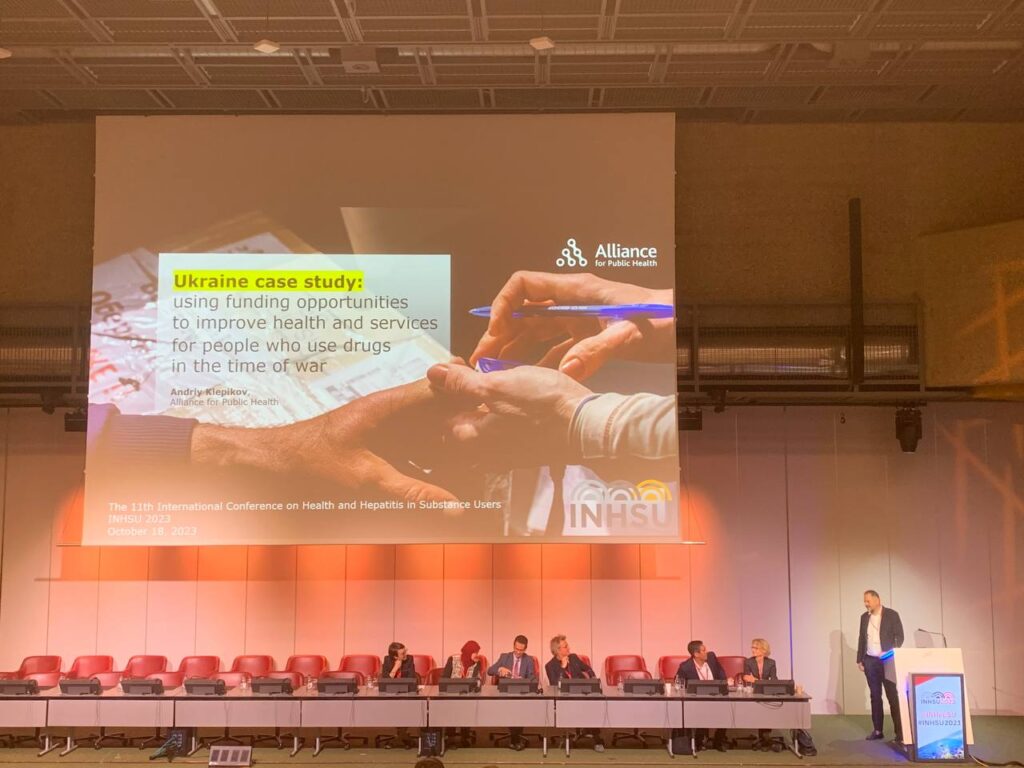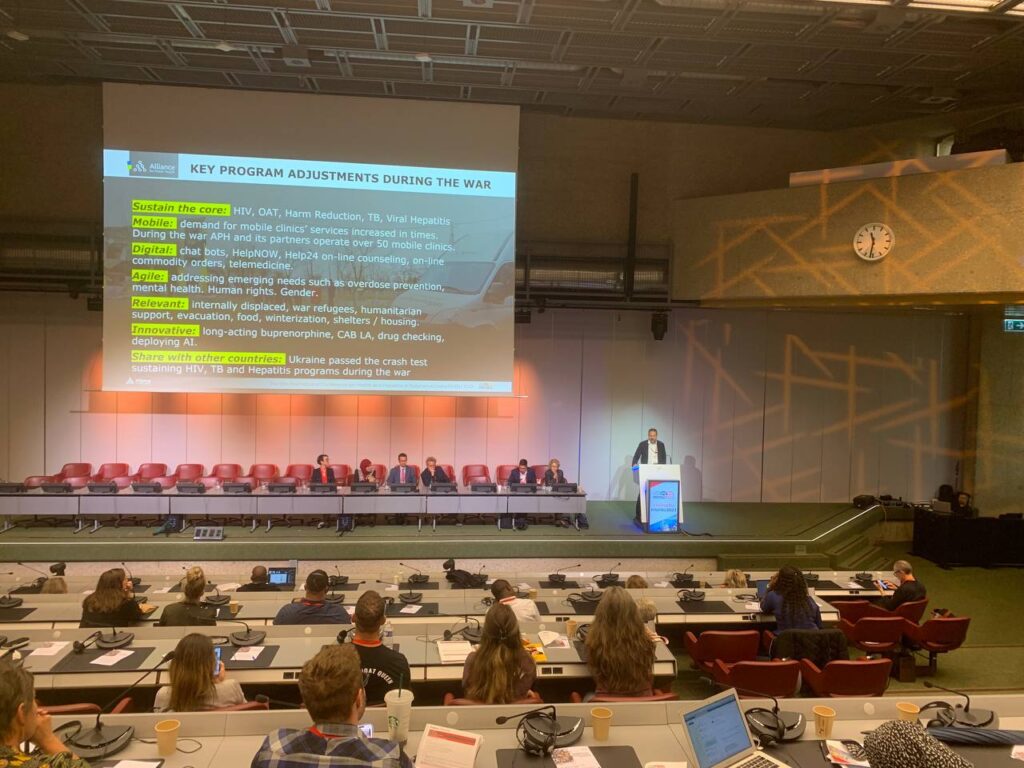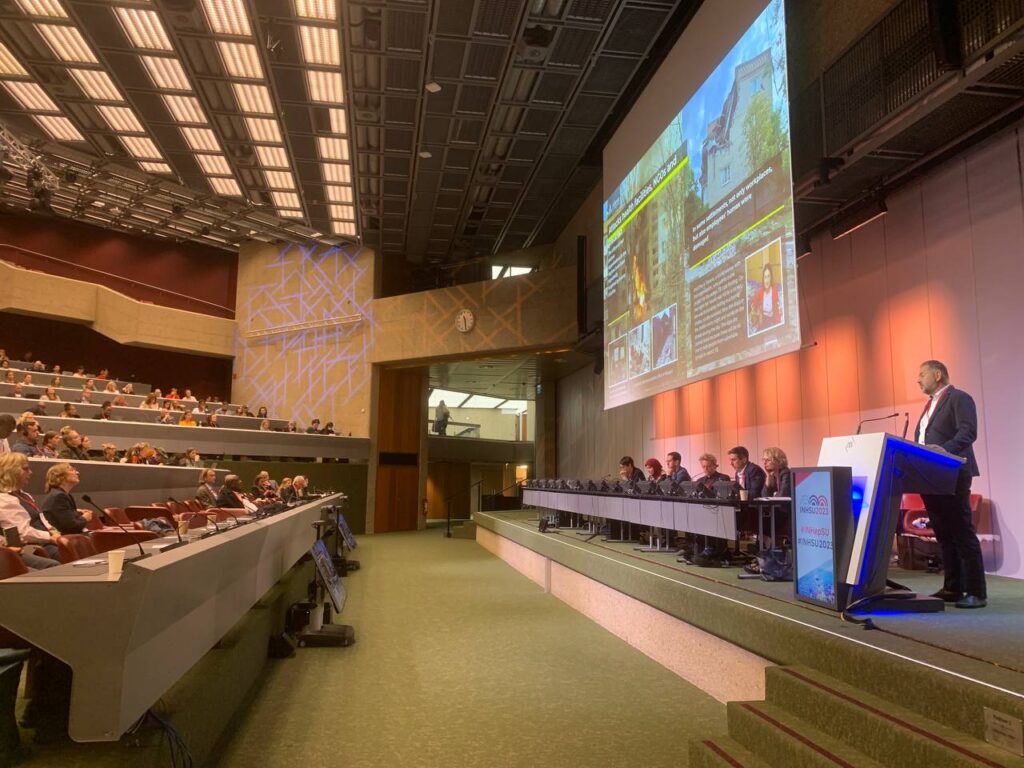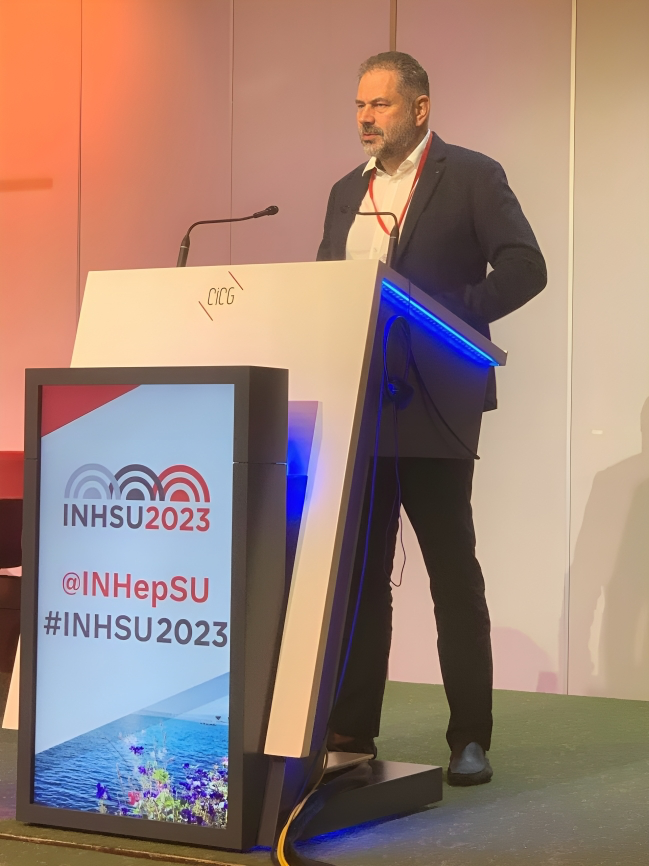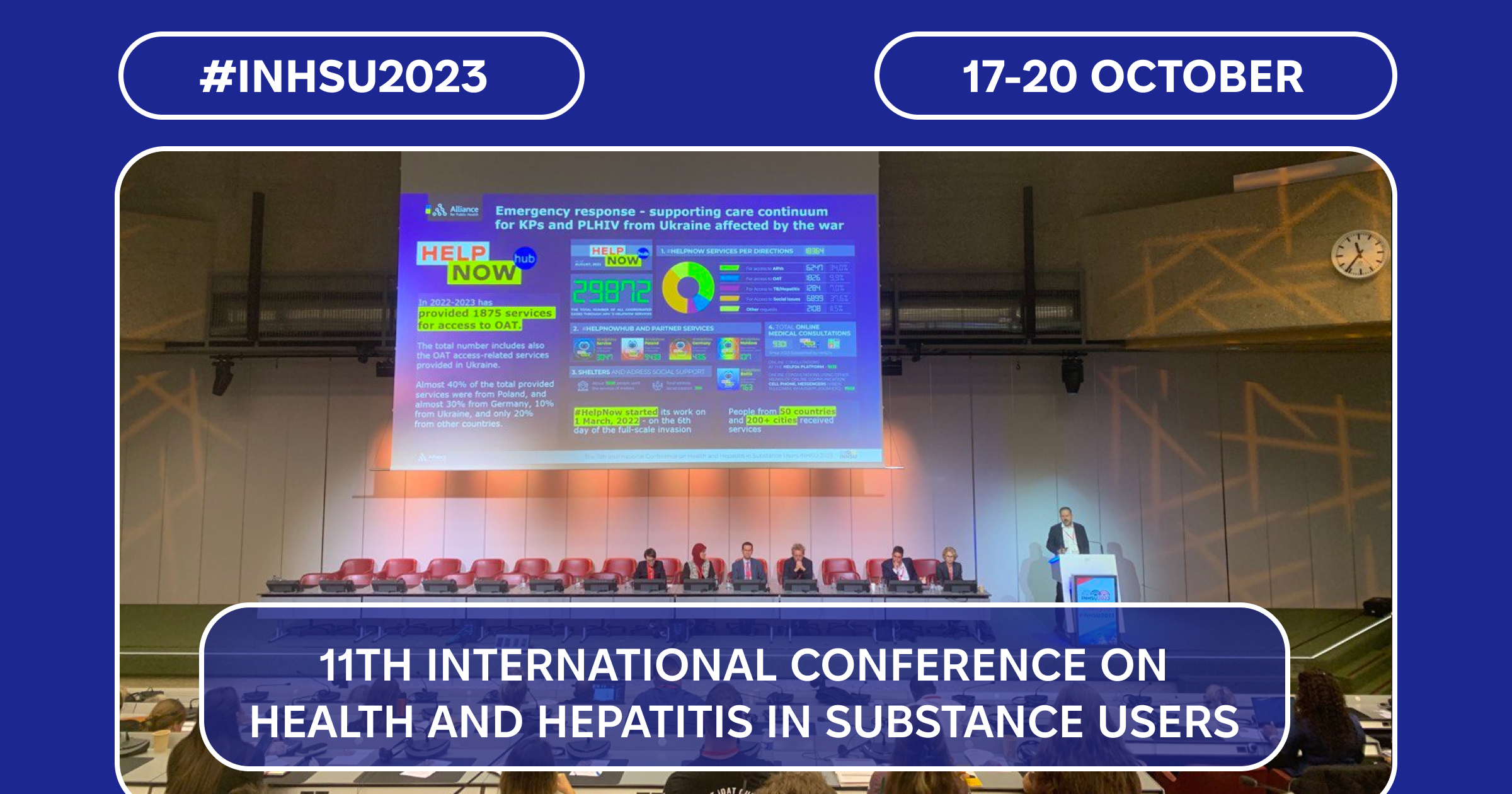Alliance for Public Health represented Ukraine at the 11th International Conference on Health and Hepatitis in Substance Users (INHSU), which takes place in Geneva from October 17 to 20.
Andriy Klepikov, the Executive Director of the Alliance, presented Ukraine’s experiences and shared how programs to improve health and services for people who use drugs (PWUD) continued to operate during the war in Ukraine.
In particular, he highlighted that during 600 days of full-scale war, 1.2 million Ukrainians, including IDPs, military personnel, civilians, children, adults, men, and women, received support from the Alliance. This support extended to more than 250,000 representatives of key populations and PWUD, who received social and medical services, as well as humanitarian aid.
During his presentation, Andriy discussed the shift in program focus during the war, which can be summarized in the following areas:
– Mobility: The demand for Mobile Clinic services significantly increased, with over 50,000 services provided in mobile clinics since February 2022. The Alliance and its partners delivered more than 50 mobile clinics during the war.
– Rapid digitalization: This involved the use of chatbots, online consultations, #HelpNOW Hub, Help24, online and digital services, and telemedicine. More than 30,000 consultations were provided through HelpNowHUB for Ukrainians in over 50 countries.
– Program flexibility: Adaptation to new needs, including overdose prevention and mental health support. New programs and platforms were introduced.
– New relevance and focus: The war led to significant migration both within Ukraine and abroad, necessitating the creation of new humanitarian programs to assist and support internally displaced persons and refugees. These programs included evacuation, food distribution, winter preparedness, shelters/housing, and access to medicine in new locations.
– Innovativeness: Ukraine launched a program for prolonged-acting buprenorphine, initiated the delivery of OST drugs through specialized transport in Krivoy Rog, Kyiv, and Odessa, introduced new approaches to drug testing, and implemented artificial intelligence.”
